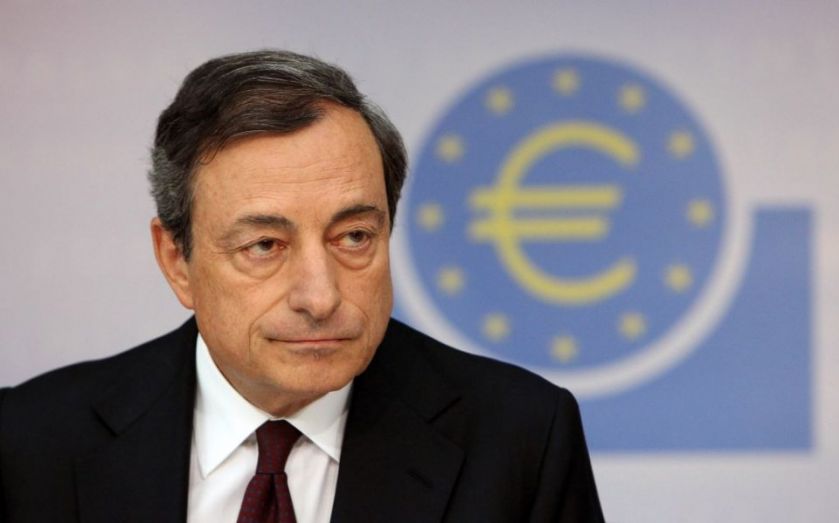Five takeaways from the European Central Bank’s April press conference

You may have been slightly distracted when a glitter-wielding protester leapt onto the table infront of European Central Bank governor Mario Draghi today. If so, here's a quick re-cap of one of the more memorable pressers:
- Greek debt negotiations: Draghi emphasised that the ball remains in Greece's court. The further provision of Emergency Liquidiy Assistance (ELA) – which is keeping the cash-strapped country afloat – "is entirely in the hands of the Greek government and the negotiations that are taking place," he said.
Greece is currently trying to come up with a set of acceptable economic reforms in order to secure further funding. Finance minister Yanis Varoufakis will jet off to the US tonight to meet President Barack Obama, as well as the lawyer who helped Greece restructure its debt in 2012.
- Economic outlook: The ECB said that euro area's economic outlook has become more balanced amid recent monetary policy conditions, falling oil prices and a lower exchange rate.
- Availability concerns: Draghi moved to quell doubts over whether the ECB would run out of bonds to buy. "We believe these worries are … premature [and] certainly not supported by the evidence."
- Duration doubts: And he assured investors by reiterating Frankfurt's commitment to its massive quantitative easing programme.
"Our focus will be on the full implementation of our monetary policy measures," he said.
"Purchases are intended to run until the end of September 2016 and, in any case, until we see a sustained adjustment in the path of inflation that is consistent with our aim of achieving inflation rates below, but close to, 2 percent over the medium term."
This built on previous dismissals by Draghi of suggestions that the ECB would scale-down stimulus sooner-than-expected, but other Eurozone officials have said the programme could wind up sooner if the inflation goal – of just under two per cent – is reached ahead of expectations.
- No bubbles: Despite quantitative easing leading to extremely low bond yields across the Eurozone Draghi said that "so far [the ECB] have not seen any evidence of a bubble."